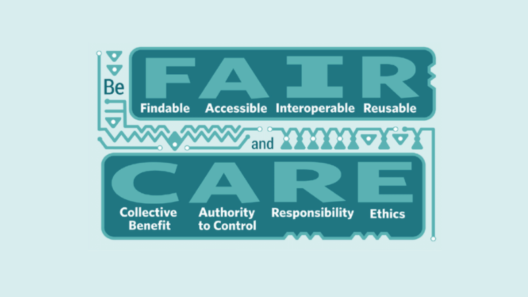Strength in numbers: a case study for building a data-based community in cystic fibrosis
Now, more than ever, data can be used to bring people together as well as numbers.
11 November 2020
Reading time: 7 minutes

The UK Cystic Fibrosis Registry is a secure centralised database, sponsored and managed by the Cystic Fibrosis Trust, which records health data on consenting people with cystic fibrosis (CF) in England, Wales, Scotland and Northern Ireland. Running since 2007, it has helped to surface valuable information, contributed to research about CF and supported the Cystic Fibrosis Trust to achieve its vision for a life unlimited by cystic fibrosis for everyone with the condition.
The research database has National Research Ethics Service Approval and people with CF provide explicit consent to participate. Thanks to the support of CF clinical teams around the country, all 61 of which take part in the Registry, over 99% of people with CF across the whole of the UK, amounting to 10,655 individuals in 2019, consent to their clinical team placing their data into our custodianship.
It, therefore, brings together, digitally, a community of people who, due to the risk of cross-infection, cannot meet face-to-face. The UK CF Registry works because it brings together people and keeps its constituent community at the core of decision-making.
The data is helping us to understand more about the changing picture of cystic fibrosis nationally (illustrated in our Annual Data Reports). 20 years ago, for example, CF was mostly a paediatric condition, causing death during early childhood. Today, however, it’s a very different story. For a child born in 2019, the median predicted survival age is 49.1 years and we expect to see this increase as new disease-modifying therapies, called CFTR modulators, become available for the majority of people with CF in the UK. We’re also seeing more people with CF prosper: in 2019, 58 women with CF had children of their own and 65% of people with CF aged 16 or over were in work or education.
The publication of data on the disparity in survival chances between men and women with CF has also triggered leading researchers to investigate its root cause; clinical experience of worse outcomes in people in lower socioeconomic groups has been quantitatively surfaced; clinical trial set up and recruitment has been streamlined, and the effects of specific treatments on infection rates and other health parameters has been retrospectively extrapolated.
Operation and governance
The operational management of the Registry is performed by a team at the Cystic Fibrosis Trust, and clinical leadership provided by an independent consultant specialising in CF.
CF clinical teams are part of the Registry’s extended family, and have worked tirelessly with the Trust, not only taking the time to have meaningful conversations about the Registry’s value to their patients but also providing data that is over 98% accurate and complete across the key variables we audit during our validation visits.
The support of the clinical community working in cystic fibrosis means that, when we look to the Registry as a window into the health of people with CF, we can trust that we are looking at the whole picture.
The operational team, who collate and report on this data, is supported by two independent committees: the Registry Steering Committee and the Registry Research Committee. The former is chaired by our clinical lead, Dr Siobhán Carr, and attended by people with CF, parents of people with CF, physicians, allied health professionals, data managers and those responsible for commissioning CF services across the UK. The latter is made up of clinical researchers as well as a person with CF and a CF parent. Both groups are tasked with providing advice on the strategic direction of the Registry, how its data is gathered and stored, how it is developed and used.
Catalysing innovation, and national and international research
Thanks to its governance model, the UK CF Registry has proved to be a catalyst for innovation. For instance, it has contributed to the launch of the world’s first clinical trial of an investigational medicinal product (CTIMP), CF START, which is led by Professor Kevin Southern of Alder Hey Children’s Hospital. This pragmatic trial is designed to be cheaper, quicker and lower burden than traditional randomised control trials (RCTs) and will address a fundamental question about antibiotic therapy for babies with CF that would have, without the Registry, continued to go unanswered.
As well as breaking down barriers presented by the logistics of traditional clinical trial design, placing this study in the care of the UK CF Registry means that data transparency is built into its foundations. Data collected by the study automatically forms part of the Registry dataset, available for further research. Importantly, embedding a study within a long-term Registry means that follow up with study participants – often cost-prohibitive – is routine and cost-free.
The ripple effect of data practices that enable streamlined access to either pseudonymised patient-level or aggregate data from the UK CF Registry is so large that it becomes hard to quantify. August 2020 saw the Registry receive its 400th request for data go to the Registry Steering Committee for evaluation.
Running through much of the Registry’s work, is the measurement of treatment impact, in particular our pharmacovigilance programme, whereby the Registry is used to monitor the safety of medicines so that this can be reported to the European Medicines Agency (EMA). This process, approved by the EMA through a Qualification Opinion, effectively improves the methodology of such studies. It ensures that patient-level data does not have to be passed on to pharmaceutical companies, and comes with the additional benefit of providing funding to the CF centres that contribute data and make the Registry’s central function financially sustainable.
Finally, international CF Registries are research collaboration engines, both at national and international levels. The UK CF Registry is the largest single contributor of data to the European Cystic Fibrosis Society Patient Registry: a ‘super Registry’ bringing together CF data sources from 35 countries, covering over 48,000 people with CF.
The Registry has also contributed to a global initiative to monitor COVID-19 in people with CF, whose vulnerability to infection may put them at high risk of infection. This initiative involves 19 countries at present and is due to publish its second update, looking at outcomes of COVID-19 in people with CF from Europe, North America, South America, Africa and Oceania. Our ability to mobilise professionals to provide the CF community with vital information during a global pandemic is thanks to the existing infrastructures of clinical and patient engagement with Registries, which will also enable long-term follow up of the impact of this infection on people with CF and serology data.
Improving access to better medication
Most recently we have seen the Registry’s underpinning of campaigning for access to the most effective CF medication available culminate in the reimbursement of medicine Kaftrio. The addition of this CFTR modifying therapy to the portfolio of available drugs means that, over time, up to 90% of people with CF will be able to access disease modifying treatment.
By ensuring that the quantity, safety and efficacy of medicines can be predicted and monitored in the real-world, the Registry can ensure that commissioners of care can confidently invest in the best-in-class therapies. Moreover, the Registry continues to play a vital role in monitoring the effectiveness of these medicines, which are available through managed access, as well as describing and targeting therapeutic development at the people not currently able to access these transformative treatments.
The Registry also protects the clinical care available to people with CF by providing trusted ‘banding’ data to commissioners of care in England. Registry data is used to categorise people with CF into disease-severity bands, which inform the funding made available to their treatment centre. What this means is that, rather than care being funded crudely according to the number of patients seen in a centre, it is proportionate and reflects the complexity of needs of each patient group, which can vary significantly across different regions of the UK.
Considering communities
We wouldn’t be able to conduct any of this work without considering people with CF, their families, and their clinical support as part of the Registry team.
During a time when it’s easy to feel isolated, the UK CF Registry has continued to bring together people from the research, clinical and patient community and to use the data to continue to fight for a life unlimited by cystic fibrosis for everyone.
This article is the fifth in a series about data stewardship. Across the series researchers and practitioners working in different organisations and contexts, who each have a unique perspective on data stewardship, will share practical experience and research ideas.
It’s not possible or desirable for one person or organisation to decide what a ‘good’ use of data is. That’s why we hope this series and our research will help push forward thinking on how to govern data for good and ensure diverse voices contribute to defining it.
Let us know what you think – Tweet @AdaLovelaceInst using #DataStewardship or email hello@adalovelaceinstitute.org with Data Stewardship in the subject line.
Image credit: Banana Oil
Related content

Working with the CARE principles: operationalising Indigenous data governance
Shifting the focus of data governance from consultation to values-based relationships to promote equitable Indigenous participation in data processes.

Common governance of data: appropriate models for collective and individual rights
From Elinor Ostrom’s design principles for governing the commons to mechanisms that ensure collective and individual data rights: what steps to take?

Practising data stewardship in India, early questions
How could data stewardship help to rebalance power towards individuals and communities?

Doing good with data: what does good look like when it comes to data stewardship?
Data can help tackle the world’s biggest challenges, if we ask the right questions about governance and apply principles for stewardship.